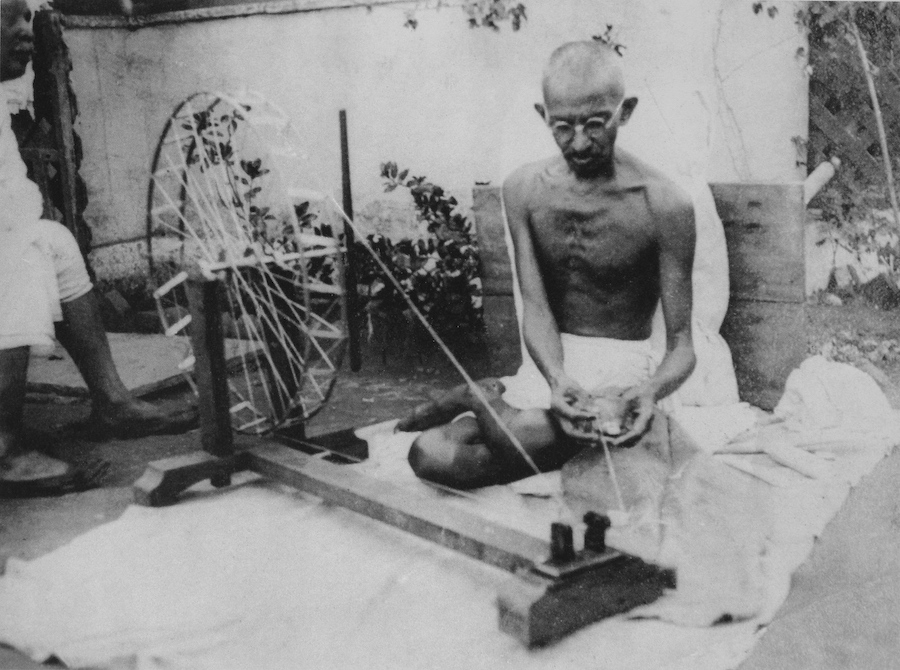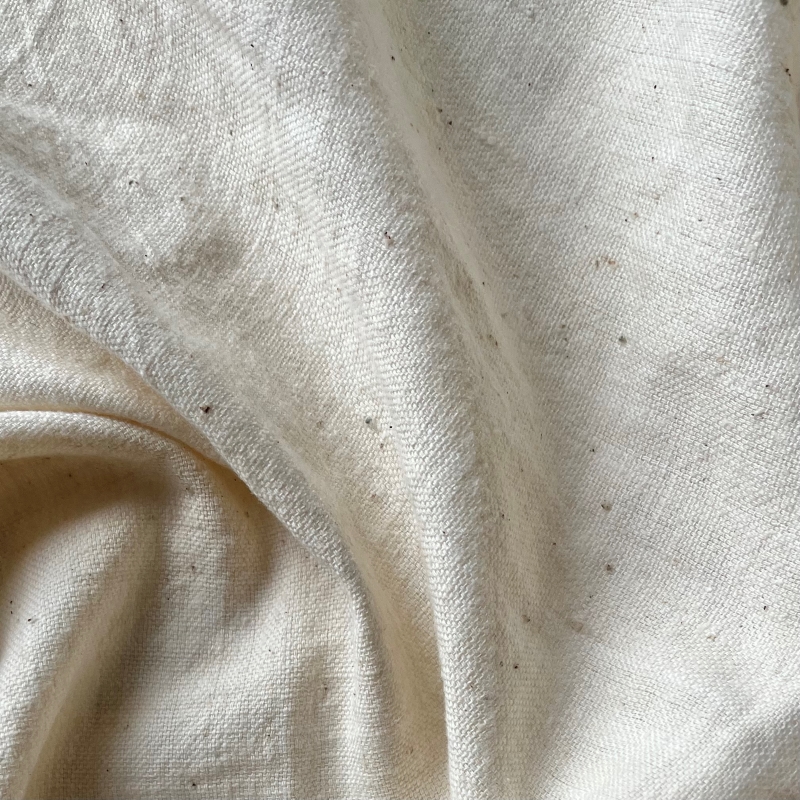India remains a land of hand-woven textiles, a tradition and know-how never lost, most famous under its common name, KHADI. Usually made of cotton, it can also be blended with some wool, silk, or linen. Revived by Mahatma Gandhi, Khadi became a symbol of self-reliance and independence, empowering rural artisans. Today, it stands as a sustainable fashion statement, blending heritage with modern trends.
Khadi fabric has recently become popular in fashion. Once regarded as traditional clothes, it has since changed to Indo-Western clothes. The level to which outfits produced from Khadi cloth are becoming increasingly popular in Western nations and Europe as well would astound us. In response to the widespread needs of the apparel and fashion industries, khadi cotton can now be found in various GSM and weaving techniques.
The Khadi & Village Industries Commission (KVIC) plays a crucial role in planning, promoting, organizing, and implementing various programs aimed at developing Khadi and village industries across rural India. KVIC is committed to empowering artisans and small entrepreneurs, fostering sustainable economic growth, and enhancing self-reliance in rural communities. Additionally, KVIC provides modern training facilities, promotes eco-friendly fabric initiatives like solar-powered charkhas, and supports the “Made in India”. To wear khadi was and still is a way to support sustainability, rural development, and craft while preserving India’s rich heritage.

How is made Khadi ?
It is a combination of 2 hand made steps. First, the fiber is turned into yarn using instruments like Charkha spinning wheels, and then the yarn is woven into fabric using hand looms.

At Green Tailor, our passion for discovering unique handwoven textiles took us to various parts of India, like Gujarat and Bihar states! But also in other regions of India, like West Bengal, for instance, which is a state very famous for its handful of artisans making very fine khadis. Hand spinners and weavers remain in numerous and located in so many villages all around India. However, it is still important to help them, value them, and promote their work; otherwise, like many craft techniques, it will vanish if the next generation isn’t educated and able to maintain it.
If you are interested in discovering our range of artisanal fabrics, you can go directly to the dedicated category—no MOQ on all these fabrics. We are selling various fabrics, all in ecru, the natural fiber textiles in the color of cotton, such as khadi, organic cotton khadi, but also kala cotton and wild silk.
If you are a professional and interested in creating a collection with artisanal fabrics, contact us at [email protected] to discuss your project.
Other links
Cotton fabrics, Cambric, Poplin, Recycled cotton, Interlock, Double gauze squares, Double gauze wrinkles, Corduroy 6 wales, Corduroy 16 wales, Cotton slub, Voile, Linen fabrics, Wild silk, Smooth chiffon, Wrinkled chiffon, Velvet silk,Recycled silk,Satin 60, Satin 80, Nidhi fabric, Neha fabric, Adha fabric, Khadi organic,Kala cotton,Khadi 40,Khadi 55, Swatchbooks,Scarves,Garments,Accessories,Distributor,Services
